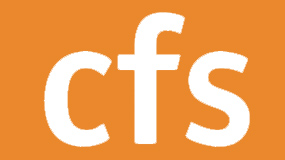
 [Update: the original article claimed that if the 15 schools attempting to defederate would leave several sections of Canada unrepresented by CFS. However, the total member unions among the provinces listed greatly exceeds 15. This claim has thus been redacted. We also acknowledge a source within CFS who puts the actual number of schools attempting defederation at four.]
[Update: the original article claimed that if the 15 schools attempting to defederate would leave several sections of Canada unrepresented by CFS. However, the total member unions among the provinces listed greatly exceeds 15. This claim has thus been redacted. We also acknowledge a source within CFS who puts the actual number of schools attempting defederation at four.]
Campuses across Canada have recently seen petitions circulating that call for the dropping out of the Canadian Federation of Students (CFS), a national student lobby group and union.
The CFS, of which Trent University is a member, is the voice of over 80 universities and colleges nationally, as well as over half a million students.
Provided that post-secondary education is funded primarily by the federal government and administered by the provincial government, the CFS argues that it is fundamentally important for students nation-wide to be able to collectively organize and represent the concerns of students to the government.
The federation is primarily an organization of students, working on a democratic, co-operative basis. It provides the common framework in which students can communicate, and it promotes the proper utilization of all student resources.
TFS facilitates discussion and implementation of administrative and legislative change, as well as the organizing services that supplement academic experience.
The union seeks achievement of its one main goal: a system of nationally planned, high quality post-secondary education that is accessible to all, and which acknowledges the importance of student representation and rights. Their goal is also to ensure that their (the CFS’s) role in society is clearly recognized and appreciated.
While the ideals of the federation seem noble enough, it would appear that the real values of the CFS are contested by student unions across the country. On September 4, it was announced by people seeking to defederate that 15 school unions were coordinating to leave the federation.
The 15 schools have not all revealed themselves yet, but it is alleged that the three largest schools within the federation, Ryerson University, York University, and the University of Toronto, all have petitions going around that call the students to “defederate.”
Sources within CFS put the number of unions seeking defederation closer to four than 15.
This is not the first time the idea of a referendum has emerged (in fact, it seems to be the case every year).
The reasoning behind the motive to “defederate,” explains Brendan Lehman, a Laurentian University student organizer, is because of “ineffective organizing practices and lobbying efforts, a bloated bureaucracy, questionable financial decisions, and low standards of democratic processes.”
The CFS has long been considered an undemocratic bureaucracy which is ineffective at lobbying.
Controversies continue to surround the union with regards to transparency as well as non-elected staff completely dominating the agenda.
There are several lawsuits swirling around based on the refusal of the CFS to acknowledge certain student unions who have voted to leave.
The federation also allegedly uses student union fees to pay for the legal counsel required for these proceedings, upwards to hundreds of thousands of dollars.
Student union fees now amass to millions of dollars for the CFS each year. Trent students pay $31.38 this year for membership in the Trent Central Student Association (TCSA), which is a founding member of the CFS. In return, the federation is supposed to lobby to the government on behalf of students. How successful have they been though?
On average, a Canadian student today graduates with an average of $27,000 in public debt. According to Statistics Canada, Canadian undergraduate students paid 5 percent more in average tuition fees in 2012/2013 than they did in 2011/2012, where there was a 4.3 percent increase from the year prior.
That is almost a 10 percent increase in tuition costs over the past two years. There has also been a 3.3 percent increase in compulsory fees since 2011/2012. The CFS might point to tuition freezes instituted over the past 10 years as symbols of success, as well as the 3 percent tuition increase cap in Ontario over the next four years.
However, this is a small victory when you consider that Ontario students continue to pay the highest tuition rates in the country, an average of $7,180, compared to Quebec, where tuition is at the lowest in the country at an average of $2,774.
Those wishing to disassociate with the federation cite poor practice and the desire to bring the federation back to its grassroot origins for their reasoning. They claim that there has been institutional failure that has left students with very little voice with regards to lobbying and proceedings.
More extreme views claim that the CFS has become a corporatist institution and is not truly a student-led group because as a whole, students have little to no real say in what goes on behind closed doors.
What is made clear by these “defederates” is that individual school unions should seek to disassociate themselves with Canada’s largest student union, as it would give the CFS a clear signal that we, the students, are not happy with the way things are going and have turned out.
What is not clear, however, is what this would mean for the future of student lobbying within Canada.
